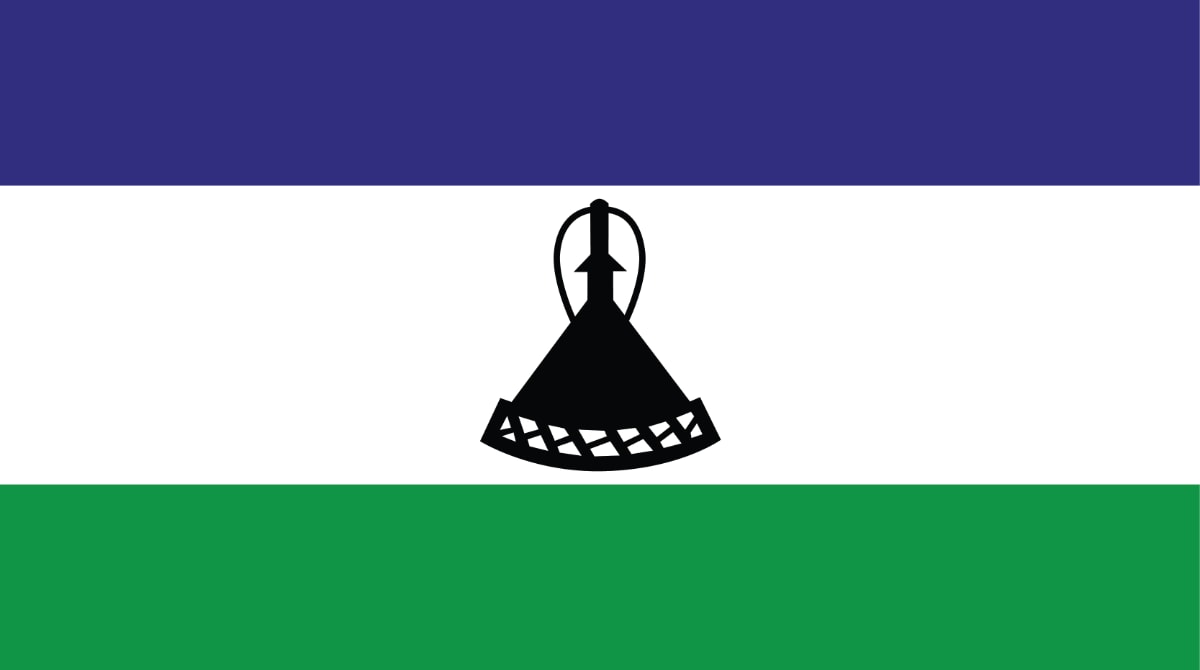At a glance
CDC established an office in Lesotho in 2007 and collaborates with the Lesotho Ministry of Health (MOH) and partners to build and strengthen the country’s core public health capabilities. Under the U.S. President’s Emergency Plan for AIDS Relief (PEPFAR), CDC’s work in Lesotho focuses on HIV prevention interventions, treatment for HIV and tuberculosis (TB), health information systems, laboratory systems, emergency management, and border health. CDC’s work aims to protect the health of Americans and support public health around the world.

Key accomplishments
- Collaborated on nationwide implementation of DHIS2 and eRegister to manage HIV and TB program data.
- Facilitated Lesotho’s National Reference Laboratory receipt of a five-star rating in 2021 from the African Society for Laboratory Medicine.
- CDC Lesotho has been pivotal in advancing Lesotho’s progress toward UNAIDS 95-95-95 targets by strengthening HIV testing, expanding and optimizing HIV treatment services, enhancing laboratory systems, and leading population-based surveys to monitor impact and guide interventions.
Global health security
CDC's global health security work in Lesotho focuses on strengthening the country's public health systems across the following core areas:
Laboratory systems
In collaboration with partners, CDC provides technical support to implement quality laboratory systems, diagnosis and monitoring tests, and new diagnostic technologies for for HIV, TB, COVID-19, and other high-priority diseases. CDC also helps strengthen local workforce capacities for effective coordination of laboratory programs to improve the quality of services like testing and sample transportation.
Emergency response
CDC’s longstanding partnerships and investments in laboratory systems and disease surveillance enabled Lesotho to leverage existing infrastructure to respond to COVID-19 and other health threats. In response to COVID-19, CDC continues to support Lesotho to ensure access and delivery of COVID-19 vaccines, disease surveillance, and robust reporting of COVID-19 cases to information systems. CDC also provided technical guidance on the rational use of personal protective equipment and development of infection prevention and control training.
HIV and TB
As a key implementer of the U.S. President's Emergency Plan for AIDS Relief (PEPFAR), CDC plays an essential role in the fight against HIV and TB. With unmatched scientific and technical knowledge and long-standing relationships with ministries of health, CDC is uniquely positioned to advance HIV, TB, and other global health security activities that keep Americans safe at home and abroad.
Through PEPFAR, CDC provides critical support to Lesotho's public health infrastructure, improving the country's ability to prevent, detect, and respond to HIV, TB, and other infectious diseases and minimizing their risk from entering the U.S.

![[thumbnail] (hidden)](/global-health/media/images/2025/11/Lesotho_thumbnail.jpg)